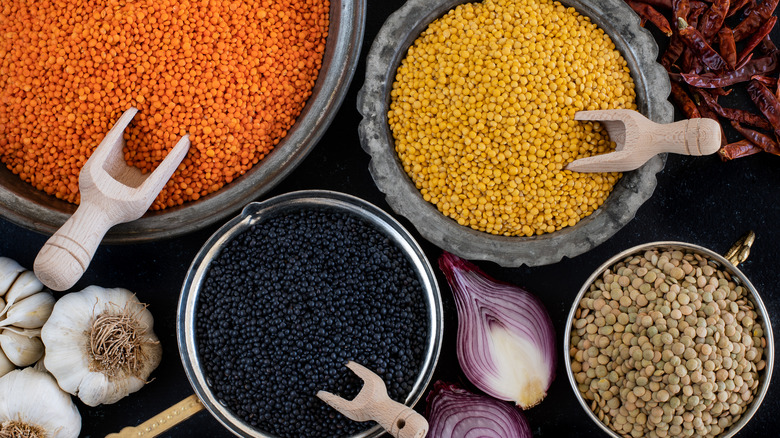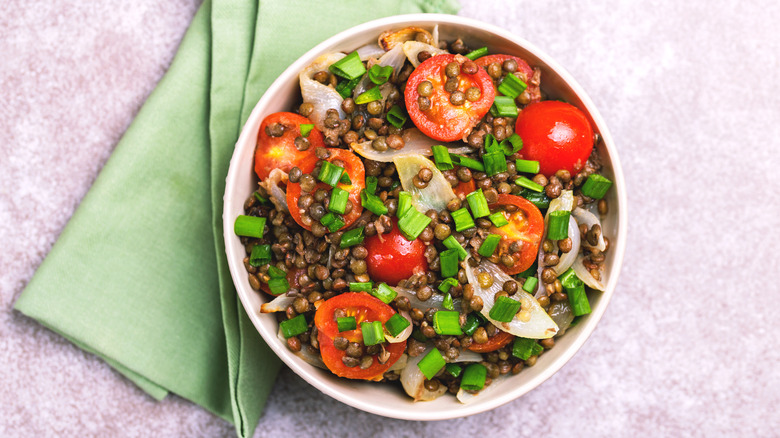The Real Reason You Should Be Eating More Lentils
Staying on top of the latest superfood trends can be exhausting, not to mention expensive. It seems like so many foods deemed superior are exported from other countries as powders or supplements. What about real food that's also good for you? Welcome the humble lentil, an edible seed belonging to the legume family (via Organic Facts).
Wide Open Eats explains that lentils come in five different colors: yellow, red, green, brown, and black. The outlet notes that yellow and red lentils are fast-cooking, and have a similar consistency that works well as a puree. Meanwhile, green, brown, and black varieties hold their shape well and are great in salads or to add texture to soup. All lentils have a nutty earthy flavor of different intensity, depending on the variety. Since they have distinct textures and a fairly subtle flavor, lentils can be incorporated into a wide range of vegetarian dishes. Besides purees, soups, and salads, lentils can be a great addition to veggie burgers, casseroles, and dips. Additionally, lentil flour is a great way to sneak extra nutrients into baked goods while keeping them gluten free.
In case you're worried about gastrointestinal discomfort, Huffpost recommends first soaking lentils, cooking them sufficiently, and adding spices that assist in digestion to the dish, such as fennel, cumin, and ginger.
What gives lentils superfood status?
As a whole, lentils are high in fiber and protein, with 15g and 18g per one cup portion respectively, according to Healthline. This makes lentils an excellent option for vegetarian or vegan diets, and as Healthline mentions, the fiber content can help regulate digestion. Organic Facts also points out that lentils contain some amino acids that can't be synthesized by the body, which assist in muscle growth. A study in Food Research International found that lentils are a prebiotic carbohydrate, and contribute to a healthy gut by promoting beneficial bacteria.
Lentils are a good option for weight management because they have almost no fat, and their low glycemic index keeps you full longer (via Taste of Home). Healthline indicates that they are great sources of important vitamins and minerals, including iron, which is less common in vegetarian diets. The site also notes high levels of magnesium, folate, zinc, potassium, and B vitamins present in the legume. Depending on their color, lentils range in their antioxidant and phytochemical content, which Healthline suggests may have anti-inflammatory and anti-cancer properties. A study in the British Journal of Nutrition also found lentils effective at lowering LDL cholesterol.
With this array of health benefits at such a low cost, it's definitely time to start experimenting with lentils. Try different colors and use them in an assortment of dishes to find your favorite!

